Fiction
Fiction
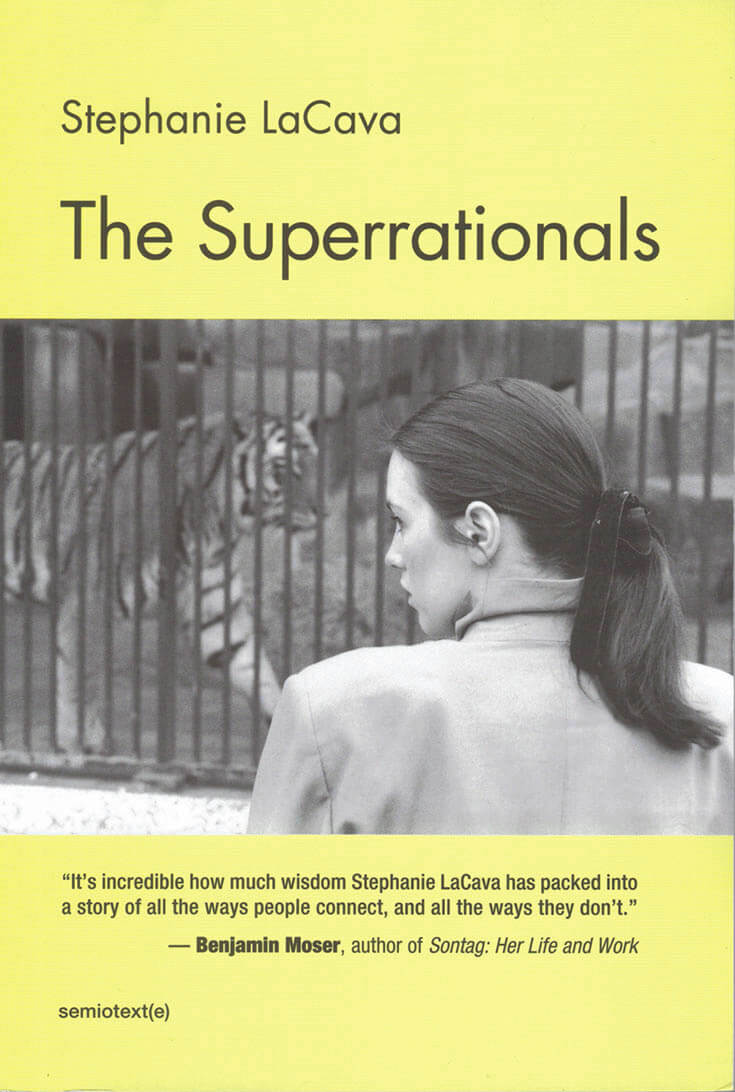
The Superrationals
An erotic and darkly comic novel about female friendship, set at the intersection between counterculture and the multimillion dollar art industry.
Over the course of a few days in the fall of 2015, the sophisticated and awkward, wry, and beautiful Mathilde upends her tidy world. She takes a short leave from her job at one of New York's leading auction houses and follows her best friend Gretchen on an impromptu trip to Paris. While there, she confronts her late mother's hidden life, attempts to rein in Gretchen's encounters with an aloof and withholding sometime-boyfriend, and faces the traumatic loss of both her parents when she was a teenager.

Ghost Image
Ghost Image is made up of sixty-three short essays—meditations, memories, fantasies, and stories bordering on prose poems—and not a single image. Hervé Guibert's brief, literary rumination on photography was written in response to Roland Barthes's Camera Lucida, but its deeply personal contents go far beyond that canonical text. Some essays talk of Guibert's parents and friends, some describe old family photographs and films, and spinning through them all are reflections on remembrance, narcissism, seduction, deception, death, and the phantom images that have been missed.
Both a memoir and an exploration of the artistic process, Ghost Image not only reveals Guibert's particular experience as a gay artist captivated by the transience and physicality of his media and his life, but also his thoughts on the more technical aspects of his vocation. In one essay, Guibert searches through a cardboard box of family portraits for clues—answers, or even questions—about the lives of his parents and more distant relatives. Rifling through vacation snapshots and the autographed images of long-forgotten film stars, Guibert muses, "I don't even recognize the faces, except occasionally that of an aunt or great-aunt, or the thin, fair face of my mother as a young girl." In other essays, he explains how he composes his photographs, and how—in writing—he seeks to escape and correct the inherent limits of his technique, to preserve those images lost to his technical failings as a photographer.
With strains of Jean Genet and recurring themes that speak to the work of contemporary artists across a range of media, Guibert's Ghost Image is a beautifully written, melancholic ode to existence and art forms both fleeting and powerful—a unique memoir at the nexus of family, memory, desire, and photography.
Hervé Guibert (1955-91) was born and worked in Paris. A noted photographer, he also contributed articles on culture to the French newspaper Le Monde and wrote works of fiction and books on photography.
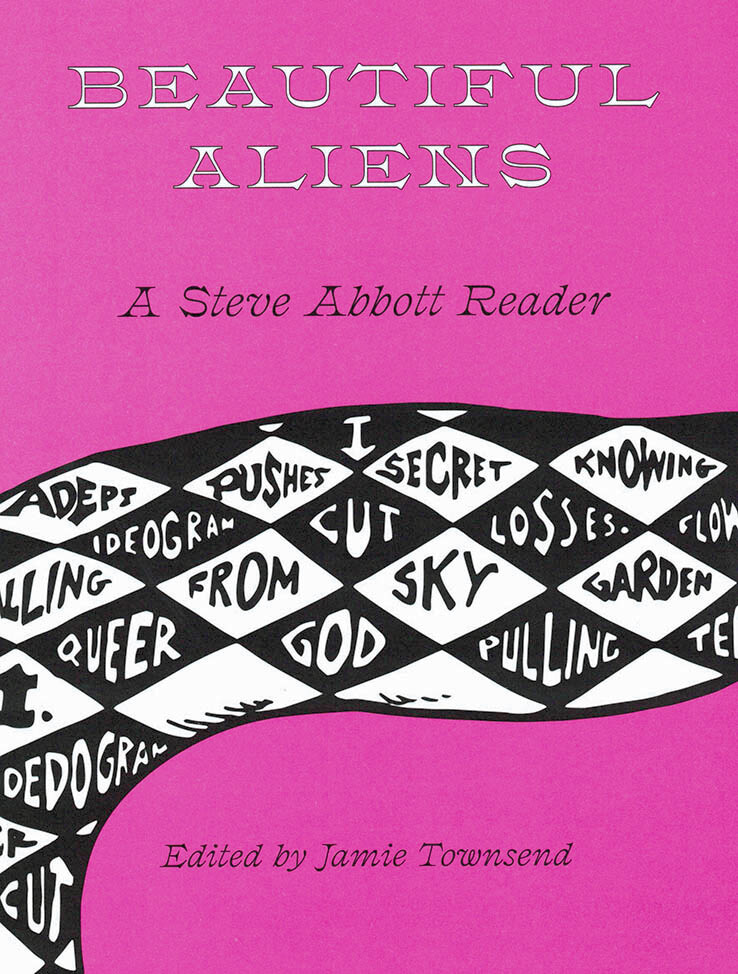
Beautiful Aliens: A Steve Abbott Reader
Beautiful Aliens: A Steve Abbott Reader is a landmark collection representing the visionary life's work of beloved Bay Area luminary Steve Abbott. It brings together a broad cross-section of literary and artistic work spanning three decades of poetry, fiction, collage, comics, essays, and autobiography, including underground classics like, Lives of the Poets and Holy Terror, rare pieces of treasured ephemera, and previously unpublished material, representing a survey of Abbott's multivalent practice, as well as reinforcing his essential role within the contemporary canon of queer arts.
"Holy Terror is good reading, well written and extremely knowledgeable about the subject of magic black and white. In fact, all magic is both."—William Burroughs
"All of us who knew the late Steve Abbott will now be happy that the stone has rolled back, to reveal the amazing accomplishment of Beautiful Aliens, poet Jamie Townsend's masterful take on Steve's multigenre work. Prose, poetry, journalism, the essay, the comic book, the novel: Steve was driven to try his hand at all these categories, excelling more often then you'd think possible. It's time that people knew a genius (of sorts) once lived at the corner of Haight and Ashbury." — Kevin Killian
Steve Abbott (1943-1992) was a poet, critic, editor, novelist and artist. Abbott was raised in Lincoln, Nebraska, graduated from the University of Nebraska, and attended Emory University where he was an organizer for Atlanta's Gay Liberation Front and the gay lib editor at the underground paper The Great Speckled Bird. Abbott moved to San Francisco in 1974 where he became was a frequent contributor to local publications, including The Advocate, The Sentinel, and the Bay Area Reporter. He was also one of the founding editors of the literary arts newsletter Poetry Flash and the publisher/editor of the literary journal Soup. Steve wrote a number of books of poetry and prose during the 1980s and early 90s including: "Wrecked Hearts", "Stretching the Agape Bra", "Lives of the Poets", "Holy Terror", "Skinny Trip to a Far Place", and "View Askew: Postmodern Investigations", a book that collects Steve's essays from The San Francisco Sentinel, The Advocate, and the arts journal Mirage. He was active in various reading series and discussion groups in the Bay Area, including Cloud House and Small Press Traffic, and, in 1981, he co-organized the historic Left/Write conference. Steve was also a respected critic and the first to use the term "New Narrative" to describe the work of contemporaries including Bruce Boone and Robert Glück. Abbott died of complications due to AIDS on December 2, 1992. His novel The Lizard Club was published posthumously. Jamie Townsend is a genderqueer poet, publisher, and editor living in Oakland, California. They are half-responsible for Elderly, a publishing experiment and persistent hub of ebullience and disgust. They are the author of several chapbooks including, most recently, Pyramid Song (2018) as well as the full-length collection SHADE (2015). An essay on the history of the New Narrative magazine Soup was published in The Bigness of Things: New Narrative and Visual Culture (2017).
Published December 2019.
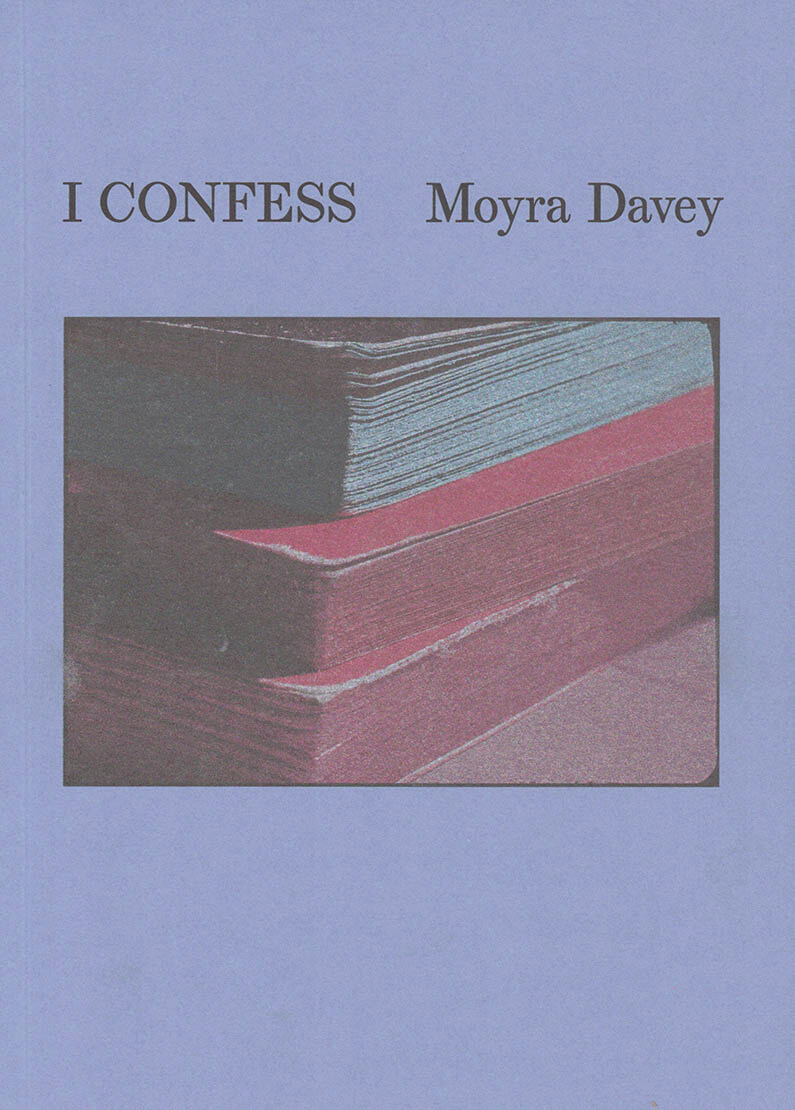
I Confess
Over the past 40 years, Canadian artist Moyra Davey (born 1958) has perfected a unique synthesis of photography, film and text to critically engage with the past, present and future of the world around her. Based on Davey's eponymous 2019 film, I Confess unites three main sources in a chronicle of late 20th-century Quebec, shaped by themes of race, poverty, language and nationalism. Using American writer James Baldwin's 1962 novel Another Country as its point of departure, Davey's film also focuses on the life and work of Québécois revolutionary Pierre Vallières and Ottawa-based political philosopher Dalie Giroux.
Published to accompany the exhibition Moyra Davey: The Faithful at the National Gallery of Canada, this deeply personal and highly political book seeks to examine an unresolved chapter of Québécois history from a uniquely interdisciplinary perspective that draws attention to contemporary issues of separatism, while reflecting the artist's understanding of photography and text as unique corollaries. This publication features writings by the artist, Dalie Giroux and National Gallery of Canada's Associate Curator Andrea Kunard, and a poster insert.
Published September 2020.
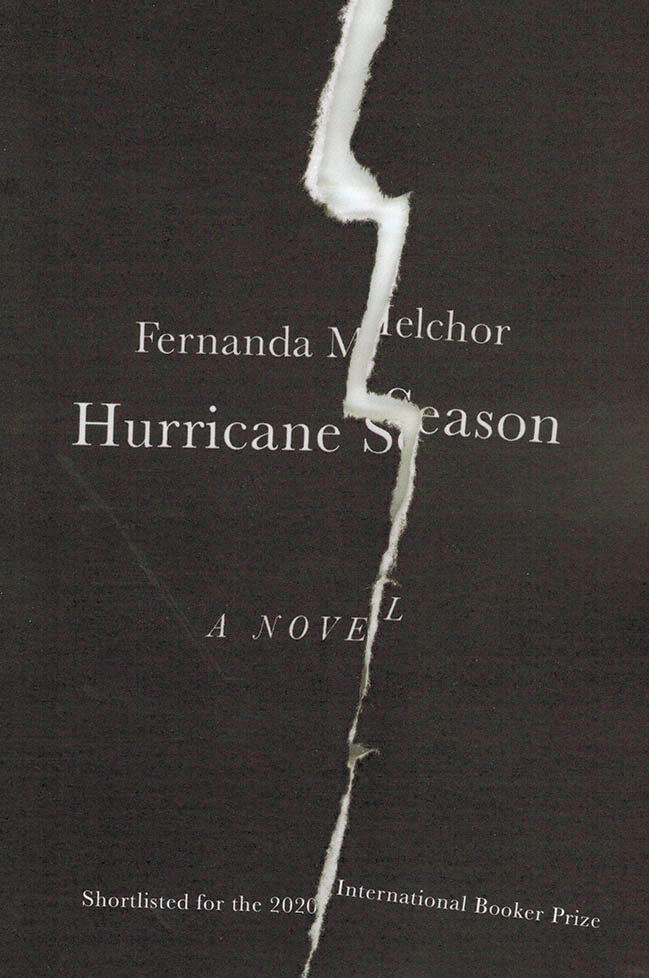
Hurricane Season
The Witch is dead. And the discovery of her corpse—by a group of children playing near the irrigation canals—propels the whole village into an investigation of how and why this murder occurred. Rumors and suspicions spread. As the novel unfolds in a dazzling linguistic torrent, with each unreliable narrator lingering details, new acts of depravity or brutality, Melchor extracts some tiny shred of humanity from these characters that most would write off as utterly irredeemable, forming a lasting portrait of a damned Mexican village.
Like Roberto Bolano's 2666 or Faulkner's novels, Hurricane Season takes place in a world saturated with mythology and violence—real violence, the kind that seeps into the soil, poisoning everything around: it's a world that becomes more and more terrifying the deeper you explore it.
Translated by Sophie Hughes.

Empty Aphrodite: An Encyclopaedia Of Fate
David Keenan, Sophy Hollington
Taking inspiration from the history and identity of the Museum of Witchcraft and Magic in Cornwall, this series of books seeks dialogue with the culture and folklore of magical practice. A range of artists were asked to create new work and collaborate on four publications that take their shape through this fascinating alternative history.
‘Empty Aphrodite’ is a radical imagining of the gods of antiquity as archetypal powers and forces that people often encounter in their lives. Organised as an alphabetic poetic sourcebook, it combines magic and inspiration in a series of surrealist portraits. The encyclopaedia comes with five random stickers with which you can choose your fate.

Satan is Real : Two Short Stories
Wendy Erskine, Steph Von Reiswitz
Taking inspiration from the history and identity of the Museum of Witchcraft and Magic in Cornwall, this series of books seeks dialogue with the culture and folklore of magical practice. A range of artists were asked to create new work and collaborate on four publications that take their shape through this fascinating alternative history.
‘Satan is Real’ comprises two short stories by Wendy Erskine, who lives in Belfast, and illustrations by London-based artist and illustrator Stephanie von Reiswitz. A missing boyfriend in Amsterdam leads to new, uncontrollable powers being unleashed. A young member of a country gospel act has a penchant for black metal. What could go wrong?
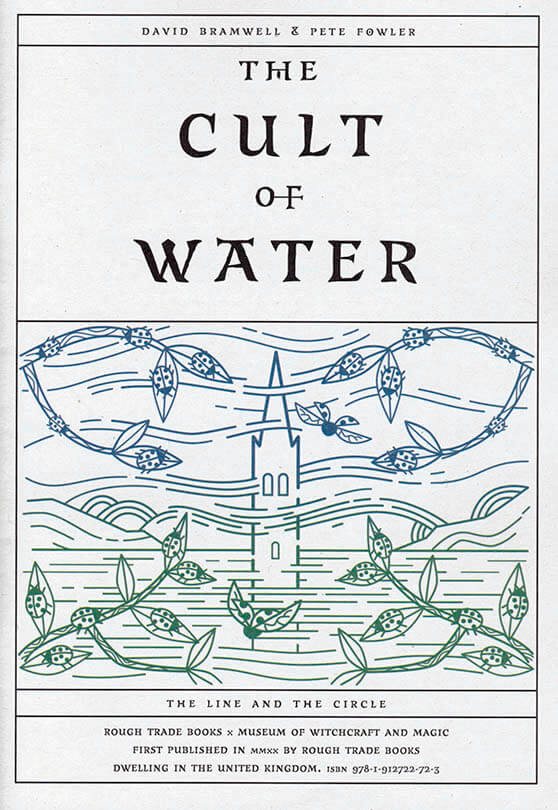
The Cult Of Water
Taking inspiration from the history and identity of the Museum of Witchcraft and Magic in Cornwall, this series of books seeks dialogue with the culture and folklore of magical practice. A range of artists were asked to create new work and collaborate on four publications that take their shape through this fascinating alternative history.
‘The Cult of Water’ began as an experimental radio programme conceived by singer-songwriter and author David Bramwell. Aided by a witch and the magician Alan Moore, he takes an occult journey back in time, in search of the supernatural secrets of our waterways – and to solve the haunting mystery of a drowned village. But can he face his demons?

Girls Against God
A genre-warping, time-travelling horror novel-slash-feminist manifesto for fans of Clarice Lispector and Jeanette Winterson.
Welcome to 1990s Norway. White picket fences run in neat rows and Christian conservatism runs deep. But as the Artist considers her work, things start stirring themselves up. In a corner of Oslo a coven of witches begin cooking up some curses. A time-travelling Edvard Munch arrives in town to join a death metal band, closely pursued by the teenaged subject of his painting Puberty, who has murder on her mind. Meanwhile, out deep in the forest, a group of school girls get very lost and things get very strange. And awful things happen in aspic.

Radical Love
Radical Love gathers five of Fanny Howe's novels: Nod, The Deep North, Famous Questions, Saving History, and Indivisible, previously out-of-print and hard to find classics whose characters wrestle with serious political and metaphysical questions against the backdrop of urban, suburban, and rural America.
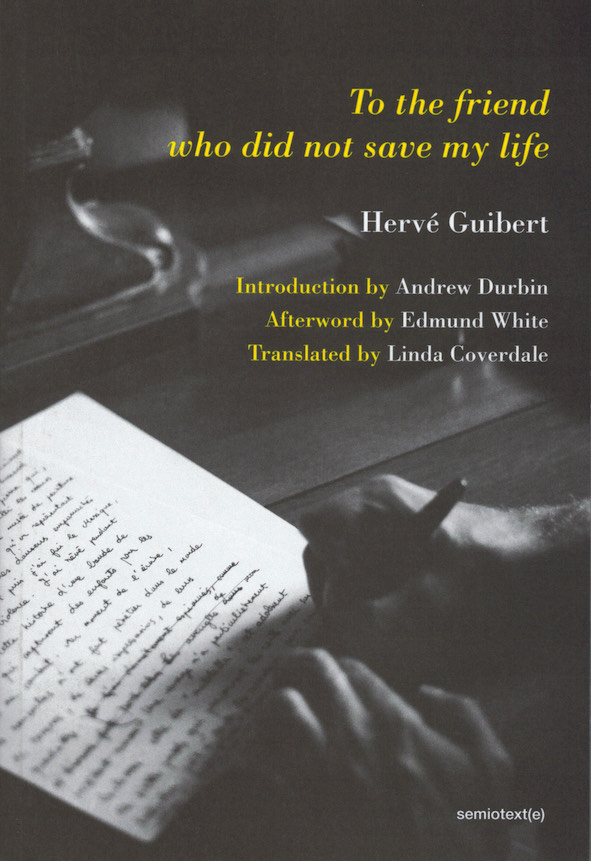
To the friend who did not save my life
A novel that describes, with devastating, darkly comic clarity, its narrator's experience of being diagnosed with AIDS. First published by Gallimard in 1990, To the Friend Who Did Not Save My Life describes, with devastating, darkly comic clarity, its narrator's experience of being diagnosed with AIDS. Guibert chronicles three months in the penultimate year of the narrator's life as, in the wake of his friend Muzil's death, he goes from one quack doctor to another, describing the progression of the disease and recording the reactions of his many friends.
The novel scandalized the French media, which quickly identified Muzil as Guibert's close friend Michel Foucault. To the Friend became a bestseller, and Guibert a celebrity. Guibert continued to document the daily experiences of his body in a series of novels and diaries, mostly published posthumously. To the Friend has since attained a cult following for its intimate and candid tone, its fragmented and slippery form. As Edmund White observed, "[Guibert's] very taste for the grotesque, this compulsion to offend, finally affords him the necessary rhetorical panache to convey the full, exhilarating horror of his predicament." In his struggle to piece together a language suited to his suffering, Hervé Guibert catapulted himself into notoriety and sealed his reputation for uncompromising, transgressive prose.
Translated from French by Linda Coverdale
Introduction by Andrew Durbin
Afterword by Edmund White
Published May 2020

Our Fatal Magic
Our Fatal Magic is a collection of feminist science fiction by contemporary artist Tai Shani. Foregrounding explorations of sensation, experience, and interiority, these twelve fantastical prose vignettes refract their ideas through a series of curious characters, from Medieval Mystics to Cubes of Flesh, from Sirens to Neanderthal Hermaphrodites. Drawing on the speculative narrative strategies pioneered by writers like Marge Piercy, Octavia Butler and others, Our Fatal Magic metabolizes new and necessary fictions from feminist and queer theory to propose an erotic, often violent space of critique in which gender constructs are destabilized, alternative histories imagined, and post-patriarchal futures proposed.
Tai Shani is a Tutor in Contemporary Art Practice at the Royal College of Art. Shani's multidisciplinary practice, comprising performance, film, photography, and installation, revolves around experimental narrative texts.
Published December 2019

Written in Invisible Ink
Written in Invisible Ink maps the writer's artistic development, from his earliest texts—fragmented stories of queer desire—to the unnervingly photorealistic descriptions in Vice and the autobiographical sojourns of Singular Adventures. Propaganda Death, his harsh, visceral debut, is included in its entirety. The volume concludes with a series of short, jewel-like stories composed at the end of his life. These anarchic and lyrical pieces are translated into English for the first time by Jeffrey Zuckerman.
From midnight encounters with strangers to tormented relationships with friends, from a blistering sequence written for Roland Barthes to a tender summoning of Michel Foucault upon his death, these texts lay bare Guibert's relentless obsessions in miniature.
Hervé Guibert published twenty-five books before dying of AIDS in 1991 at age 36. An originator of French autofiction of the 1990s, Guibert wrote with aggressive candor, detachment, and passion, mixing diary writing, memoir, and fiction. Best known for the series of books he wrote during the last years of his life, chronicling his coexistence with illness, he has been a powerful influence on many contemporary writers.
Edited and Translated by Jeffrey Zuckerman
Published May 2020

Licorice
'Licorice' is a novel, a mixed-up tale about a film, a windmill and city folk. The plot involves the making of a film by characters who are trying to gain permission to record the noises inside a reconstructed windmill to use as its soundtrack. When they don't succeed, the eponymous character Licorice makes an Aeolian harp out of bits she finds in a small electricals recycling bin. Licorice is the first title in the forthcoming Interstices series of books guest edited by Brighton based author Bridget Penney, whose previous publications include Honeymoon with Death and Other Stories (Polygon, 1991) and Index (Book Works, 2008).
144 p, ills colour & bw, 11 x 18 cm, pb, English

Exquisite Mariposa
In the aftermath of a reality TV deal gone wrong, Fiona Alison Duncan asks the question, Can you rewrite your life? The answer, her debut novel Exquisite Mariposa, follows a cast of housemates as they navigate questions of art making and economies, breakups and breakdowns, and the internet and its many obsessions.
Given the initials F.A.D. at birth, Fiona Alison Duncan has always had an eye for observing the trends around her. But after years of looking for answers in books and astrological charts and working as a celebrity journalist to make rent, Fiona discovers another way of existing: in the Real, a phenomenological state few humans live in. Fiona's journey to the Real takes her to Koreatown, Los Angeles, where she sublets a room in La Mariposa. There, in the aftermath of a reality TV deal gone wrong, Fiona asks the question, Can you rewrite your life? The answer, her debut novel, Exquisite Mariposa, follows a cast of friends and lovers as they navigate questions of art making and economies, breakups and breakdowns, and the Internet and its many obsessions.
Fiona Alison Duncan is a Canadian American artist, writer, and organizer. She's the founding host of Hard to Read, a lit series, and Pillow Talk, community organizing on sex, love, and communication. She lives in New York and Los Angeles.
Published 2019

The Woman Warrior: Memoirs of a Girlhood Among Ghosts
A classic memoir set during the Chinese revolution of the 1940s and inspired by folklore, providing a unique insight into the life of an immigrant in America. When we Chinese girls listened to the adults talking-story, we learned that we failed if we grew up to be but wives or slaves. We could be heroines, swordswomen. Throughout her childhood, Maxine Hong Kingston listened to her mother's mesmerizing tales of a China where girls are worthless, tradition is exalted and only a strong, wily woman can scratch her way upwards. Growing up in a changing America, surrounded by Chinese myth and memory, this is her story of two cultures and one trenchant, lyrical journey into womanhood. Complex and beautiful, angry and adoring, Maxine Hong Kingston's The Woman Warrior is a seminal piece of writing about emigration and identity. It won the National Book Critics Circle Award in 1976 and is widely hailed as a feminist classic.
Maxine Hong Kingston is the daughter of Chinese immigrants who operated a gambling house in the 1940s, when Maxine was born, and then a laundry where Kingston and her brothers and sisters toiled long hours. Kingston graduated with a bachelor’s degree in 1962 from the University of California at Berkeley, and, in the same year, married actor Earll Kingston, whom she had met in an English course. The couple has one son, Joseph, who was born in 1963. They were active in antiwar activities in Berkeley, but in 1967 the Kingstons headed for Japan to escape the increasing violence and drugs of the antiwar movement. They settled instead in Hawai‘i, where Kingston took various teaching posts. They returned to California seventeen years later, and Kingston resumed teaching writing at the University of California, Berkeley.
Published 1989
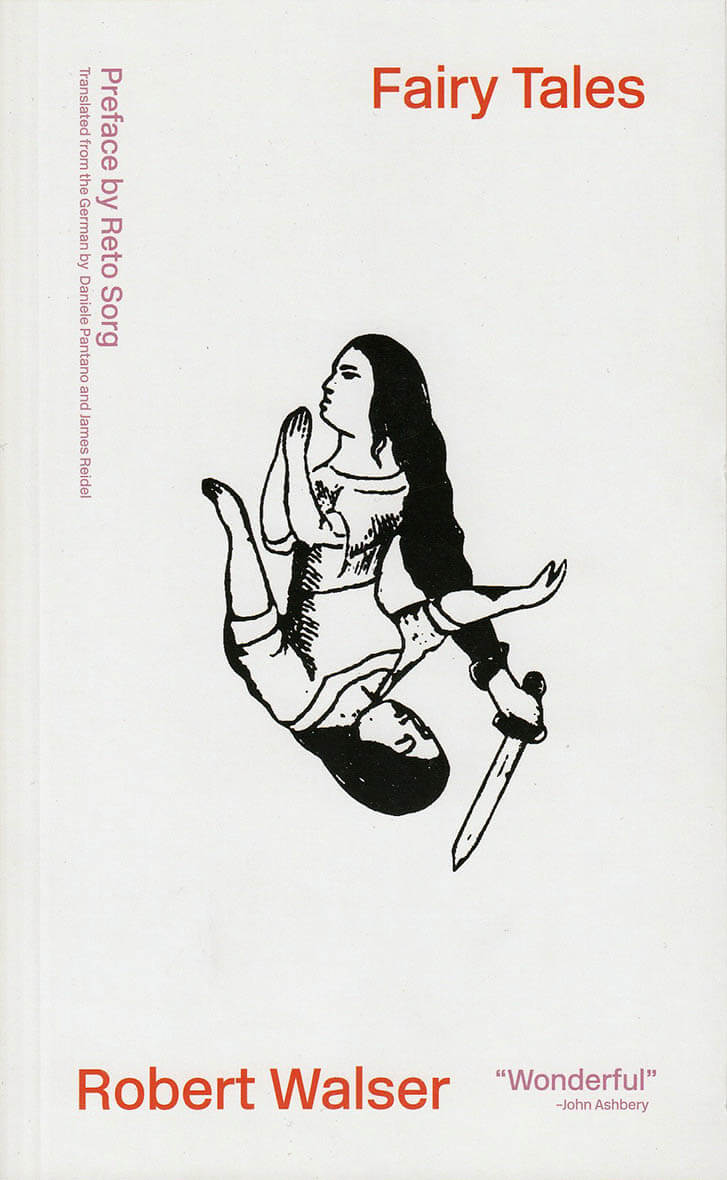
Fairy Tales: Dramolettes
Fairy Tales gathers the unconventional verse dramolettes of the Swiss writer Robert Walser. Narrated in Walser's inimitable, playful language, these theatrical pieces overturn traditional notions of the fairy tale, transforming the Brothers Grimm into metatheater, even metareflections.
Snow White forgives the evil queen for trying to kill her, Cinderella doubts her prince and enjoys being hated by her evil stepsisters; the Fairy Tale itself is a character who encourages her to stay within the confines of the story. Sleeping Beauty, the royal family, and its retainers are not happy about being woken from their sleep by an absurd, unpretentious, Walser-like hero. Mary and Joseph are taken aback by what lies in store for their baby Jesus.
Robert Walser (1878-1956) was born in Switzerland. He left school at fourteen and led a wandering and precarious existence working as a bank clerk, a butler in a castle, and an inventor's assistant while producing essays, stories, and novels. In 1933 he abandoned writing and entered a sanatorium—where he remained for the rest of his life. "I am not here to write," Walser said, "but to be mad."
Published 2015

Close to The Knives
In Close to the Knives, David Wojnarowicz gives us an important and timely document: a collection of creative essays — a scathing, sexy, sublimely humorous and honest personal testimony to the "Fear of Diversity in America." From the author's violent childhood in suburbia to eventual homelessness on the streets and piers of New York City, to recognition as one of the most provocative artists of his generation — Close to the Knives is his powerful and iconoclastic memoir. Street life, drugs, art and nature, family, AIDS, politics, friendship and acceptance: Wojnarowicz challenges us to examine our lives — politically, socially, emotionally, and aesthetically.
David Wojnarowicz was an American painter, photographer, writer, filmmaker, performance artist, and AIDS activist prominent in the New York City art world. He was born on September 14, 1954. He died of AIDS on July 22, 1992.
published 1991
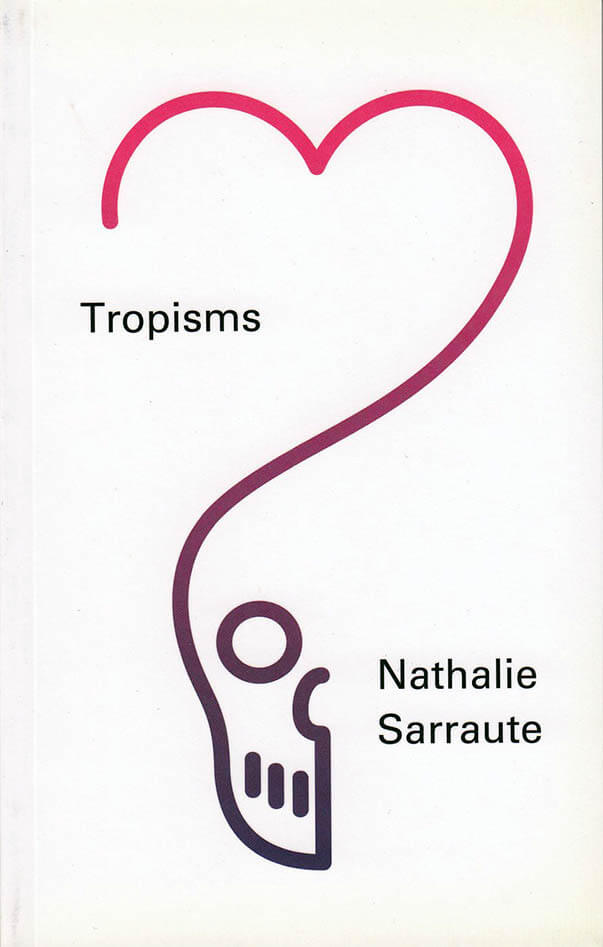
Tropisms
Nathalie Sarraute's Tropisms is considered one of the defining texts of the nouveau roman movement. Tropisms was championed as a masterpiece by Jean Genet, Marguerite Duras, and Jean-Paul Sartre, who hailed Sarraute as his favorite "anti-novelist." Sarraute defined her Tropisms as the "movements that are hidden under the commonplace, seemingly harmless instances of our everyday lives." Like figures in a grainy and shadowy photo, the characters in Tropisms are barely defined, the narrative never developed beyond a stressed moment. Instead, Sarraute brilliantly highlights the shift in tone through remarks or subtle details when a relationship changes, when we fall slightly deeper into or begin to emerge out of love or trust, or when something innocent tilts by the smallest degree toward suspicion.
Tropisms—something like 'prose poems'—as Sarraute calls them that— this is her form! Her texture is anti-novelistic, though she's decided to write 'novels' and launched an important critique of the novel on the basis of her method.—Susan Sontag
Translated by Maria Jolas.
Published 2015.
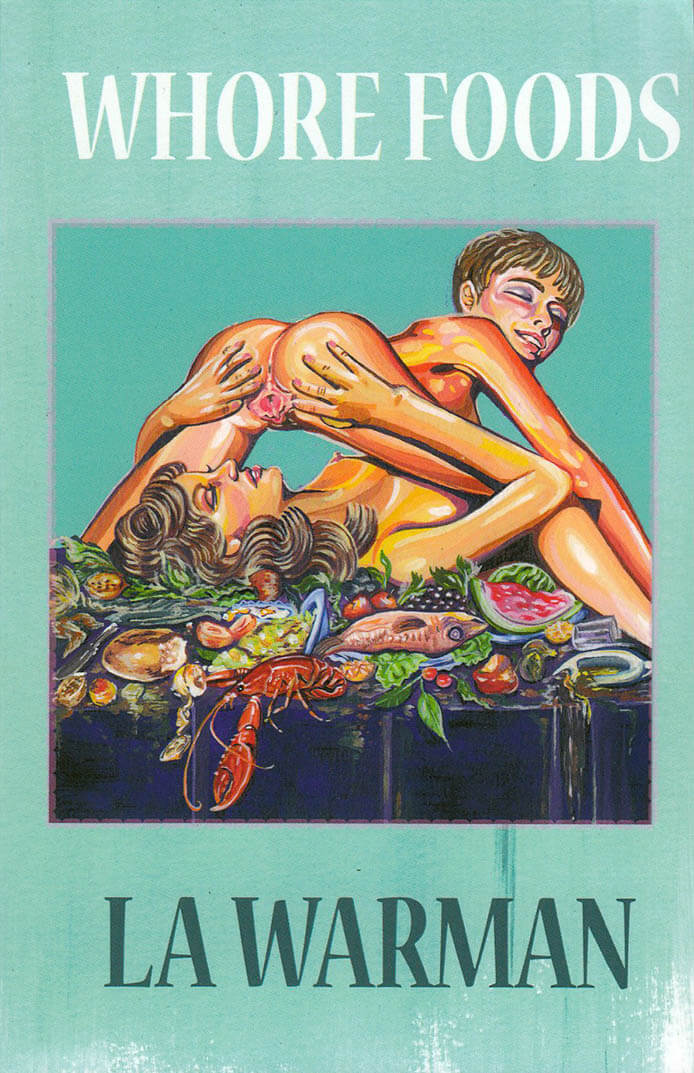
Whore Foods
Collecting and expanding pieces from her seminal newsletter detailing the inner and outer sexual life of a grocery store cashier, LA WARMAN'S WHORE FOODS is a guaranteed feast for sore thighs. Now available in raw pulp paperback form for the first time. Cleanup in Aisle 4.
"She made fun of the construction workers for not being white, for not knowing time like she knows time and I can’t say “That’s racist” because I am on the job. I am getting paid not to speak. I am getting paid to open up my body to you but not reveal it. The way I put my eyes down when you fight with your husband in line. To shit my pants only a little so you can’t see. The smell of watercress, pineapple, rice, and shit. She’s in my line again asking me if I eat ass.
Yes, sometimes.
Saw a good ass, saw a real good ass."
LA Warman is a poet and performer. She is the founder of GLASS PRESS, a publisher of art and poetry on flash drives. Warman has had work in shows at MOCA Cleveland, ICA Philadelphia, Time-Based Art Festival, General Public Collective, Flying Object, A.T.M. Gallery, and Open Engagement. Her chapbooks How to Become a Lesbian and THE CAVE THE CHURCH THE BEDROOM THE MALL were published by Inpatient Press and After Hours Ltd. Warman wrote and directed a 12 hour text and movement performance piece, Break, that premiered at Deli Gallery in 2018. She teaches Erotica classes online at LAWarman.com and in Brooklyn.
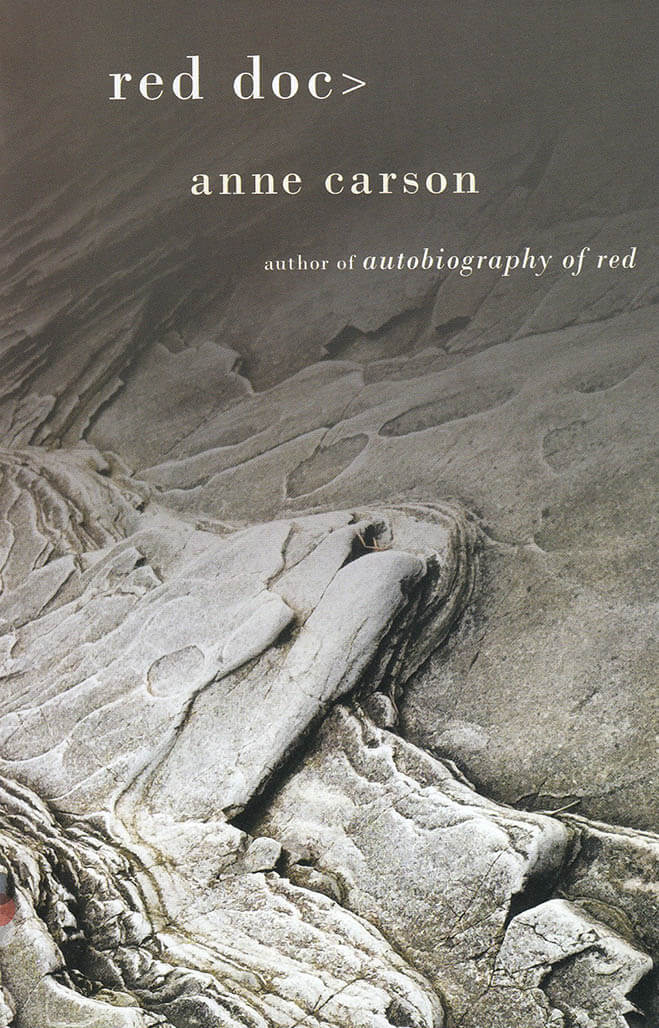
Red Doc
"Some years ago I wrote a book about a boy named Geryon who was red and had wings and fell in love with Herakles. Recently I began to wonder what happened to them in later life. Red Doc> continues their adventures in a very different style and with changed names. To live past the end of your myth is a perilous thing." Anne Carson
Anne Carson was born in Canada and has been a professor of Classics for over thirty years. Her awards and honors include the Lannan Award, the Pushcart Prize, the Griffin Trust Award for Excellence in Poetry, and fellowships from the Guggenheim and MacArthur Foundations.
Published 2014.
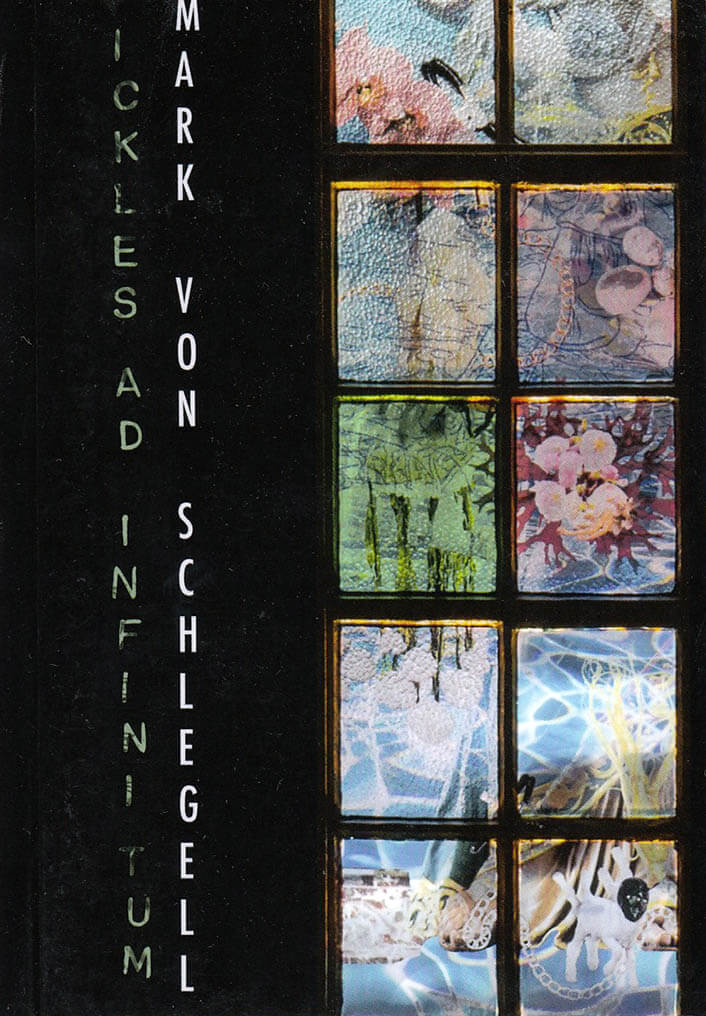
Ickles, Ad Infinitum
In the 2090s, Earth is somehow still here. Drones and clones are big business and Henries Ickles, debonair New Los Angeles infoarchitect, wants in on the action. Metaphysical theories are put into practice, invisible art is critiqued, quasicrystals are crafted, yogurt is spilled. From diplomatic misadventures with metallic herds in RealSweden to an underwater rendezvous in the free domes of MiamiVII, Ickles, ad Infinitum is a compendium of the exuberant and the abject, a refracted hologram of the absurdities of cultural production that swerves between incisive ode and knowing lampoon.
Mark von Schlegell has been pushing the envelope with independently-published experimental fiction and theory since the 1990s. He was born in New York, moved to L.A. in 2000, and currently lives in Cologne. His first novel, Venusia (Semiotext(e), 2005) was honor's listed for the Otherwise Award in Science Fiction.

Axiomatic
How to speak of the searing, unpindownable power that the past-ours, our family's, our culture's-wields in the present? Drawing on nine years of research, Axiomatic explores the ways we understand the traumas we inherit and the systems that sustain them. In five sections-each one built on an axiom about how the past affects the present-Tumarkin weaves together true and intimate stories of a community dealing with the extended aftermath of a suicide, a grandmother's quest to kidnap her grandson to keep him safe, one community lawyer's struggle inside and against the criminal justice system, a larger-than-life Holocaust survivor, and the history of the author's longest friendship. With verve, wit, and critical dexterity, Tumarkin asks questions about loss, grief, and how our particular histories inform the people we become in the world.
Maria Tumarkin is a writer and cultural historian. A recipient of the Windham-Campbell Prize, she is the author of three previous books of ideas, Traumascapes, Courage, and Otherland, all of which received critical acclaim in Australia, where she lives. Her most recent work, Axiomatic, was a finalist for the National Book Critics Circle Award.
Published 2019.
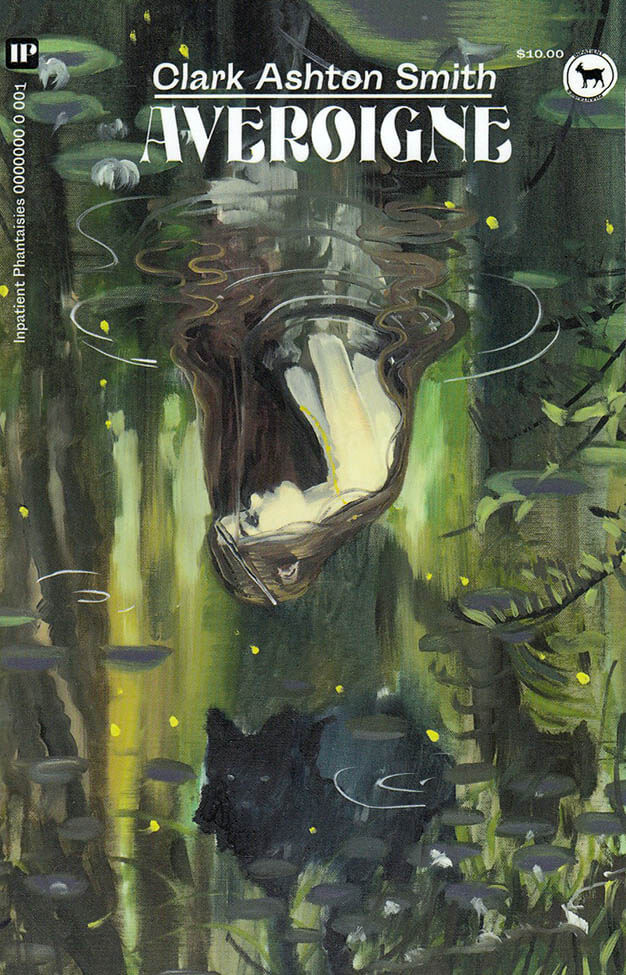
Averoigne
Finally collected in a signature single standalone edition, Clark Ashton Smith's Averoigne is a testament of temptation and transcendence: corrupt sellswords, vengeful sorceresses, and time-warping dissident priests all play a part in these tales set in the louche groves of Smith's decadent imagination.
Printed in the style of the erstwhile Ballantine Books Adult Fantasy Series, Averoigne concludes the iconic five-book cycle begun by editor Lin Carter in 1970 and left unfinished until now.
"No other world [of Smith's] feels so bound to actual human endeavors, to the concrete ruins of landscape and lore, to humanity groping toward a sense of itself. What Averoigne offers us is an affective history, a surrender of the imagination not to history’s facts, but to its ambience, its desires." - Kit Schlüter